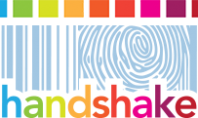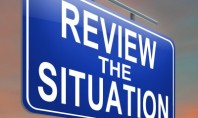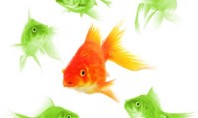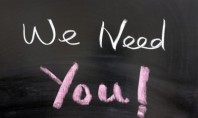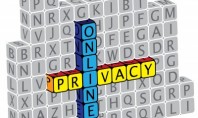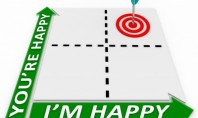If you’re human, it all comes down to trust
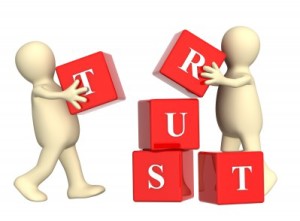
Trust is a little word, but it deals with some very big issues, from what it means to be human to the wealth of nations. And it’s time that business took it seriously.
Graham Greene, the English novelist and playwright, perhaps summed it up most concisely:
“It is impossible to go through life without trust: to do so is to be imprisoned in the worst cell of all, oneself”
From the moment we are born, indeed from way before then, we are dependent on other people. And that dependency means that we have to trust them: to feed us, to clothe us and keep us warm, to comfort and care for us, to keep us safe and secure. We can map our lives in terms of the way that that initial circle of trust between a child and its parents expands to include more and more people, and transforms so that those relationships become two-way, based on mutuality and inter-connected in more and more complex ways. If we then look at the problems we face, as indexed for instance by the torrent of bad news our media deliver to us daily, almost all of this can be seen as the result of the violations of relationships of trust: the church and child abuse, police who act unlawfully, our banks and their reckless and incompetent financial dealings, hospitals failing to provide care and compassion, governments who violate the rights of their citizens, and corporations who avoid paying their fair share of taxes. All of these are instances where we trusted people to do the right thing, and that trust has been shown to be misplaced.
Given how important trust is it seems reasonable to examine what it is, where it comes from, and what happens if you have it, and perhaps most importantly, what happens when it is destroyed. And then it will become clear why businesses have to seriously concern themselves with trust: with creating it and keeping it, and regaining it since so many of them seem recently to have conspicuously and spectacularly destroyed whatever trust they had managed to gain.
Let’s start with thinking about what trust is. One key element is the notion of consistency and predictability. We trust people who act in ways that we can predict and understand. People who are unpredictable may be exciting, at least for a short while, but they are also hard work and almost tautologically, can’t be trusted. But predictability is only one element of trust, what we might term “little t trust”. When we say of someone “I knew I could trust you to say/do the wrong thing” we are distinguishing between the “little t” of predictability and the “Big T” trust of “doing the right thing”. That is, the person who we trust with a big T is not only consistent, but more importantly they can be relied upon to act appropriately (i.e. in accord with the norms of the situation they are in), and perhaps even more importantly, in a way that is fair and moral. Trust is not just about being consistent, it’s about being conscientious.
The big question here is what we mean by “doing the right thing”.
Social scientists from a wide variety of disciplines (psychology, sociology, anthropology) have noted that exchange and equity appear to be fundamental and universal principles that shape and drive human social behaviour and relationships. In particular they have pointed to the fundamental importance of the Rule of Reciprocity:
“If I give you something, you will give me something in return (and what you give me will be similar in value to the value of my original gift to you)”
Relationships where this rule is observed tend to continue and prosper, relationships where this rule is ignored or abused tend to decline and die. The notion of equity adds an important qualification to the basic rule of reciprocity. It recognises that some people have more to start with, and so equity states that the value or benefit gained by one person should be proportionate to the effort or cost they have committed, relative to the benefit/cost gained by the other person, and to the resources each of them has available. The notion of equity allows me to feel that reciprocity has been achieved if I get less back than I have given if I also recognise that the other person is much less able to give me something than I am to give them something: if in my picnic lunch I have a packet of 25 chocolate biscuits and I give them one, but they only have one biscuit in theirs, I will feel that they have more than reciprocated if, say, they simply break their one biscuit in half and give me one of those halves.
When we talk about somebody “doing the right thing” in the context of fairness and trust we are usually referring to this underlying notion of equitable reciprocity. [One expression of this is the proposition that “each should contribute according to their abilities, and should receive according to their needs”.]
When we then think about more and less trust, we can see that when we say that we trust a person “a great deal” versus noting that we don’t trust them very much, this refers to important variations on these principles of reciprocity and equity:
If we trust a person more, we will enter into activities and relationships with them in which more and bigger and bigger things are exchanged, with more important consequences than those we trust less
We will tolerate longer time periods between when we hand over our resources to them, and when we expect them to reciprocate and meet their side of the bargain
If we trust a person more, we will be less concerned to spell out exactly what the deal is, to make it public, formal and monitored, and we will spend less time and effort monitoring and nudging them to reciprocate
And if we turn each of these around we can see that life becomes much more difficult, much less enjoyable and much emptier when we don’t trust people. In a business context, doing business is more difficult, considerably more costly and much riskier when we can’t trust the people or organisations we are trying to do business with.
The problem is that in a world where the Internet has become more and more influential, and more and more an integral part of the way we lead our lives, these basic principles of trust seem to have been forgotten or ignored. Corporations and governments both seem to have forgotten that our personal data belongs to us as individuals, and that if they wish to take and use that data then certain basic rules of how humans deal with each other need to be recognised and complied with. They are the rules of recognising ownership, of asking permission to use that data, of giving choice about whether or not permission is granted, and crucially, providing equitable reciprocity when data is taken and used. Many (most?) of today’s big businesses have been shown to have systematically abused these basic principles of healthy human interaction and building trusting relationships (indeed, some people have argued that their basic business models depend on abusing these principles). If they are to continue to flourish, let alone survive, then the Googles and Facebooks of this world are going to have to get back to basics and rebuild their users’ trust in them. If they don’t (and re-gaining lost trust is a tough ask) then they are likely to be superseded by rival organisations who succeed and flourish precisely because they do adhere to these principles. Building trust, and the equitable reciprocity which underpins it, could become the core content of tomorrow’s MBA’s. And wouldn’t it be nice if it did?





